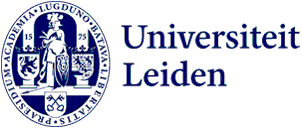
Update Executive Board: Dark clouds over the humanities
The Schoof cabinet has presented its budget. As expected, higher education is facing severe cuts. In the coming period, the Executive Board will regularly look at the consequences of what it deems an irresponsible policy.
The Faculty of Humanities is likely to have to make significant cuts to its programmes and courses because of a growing shortfall. This could mean that degree programmes are scrapped or merged. Nor can a reorganisation and job cuts be ruled out. These plans do not yet include the government plans to make sweeping cuts to higher education.
‘We are shocked by the dark clouds gathering above the faculty’, says Rector Hester Bijl. ‘We support the faculty – the board, the students and staff – in this difficult time and are helping seek solutions. The starting point is to do all we can to limit the damage.’
The faculty is struggling with dwindling student numbers, which makes funding smaller programmes and courses problematic. Various committees within the faculty have already started working on plans and the institutes are closely involved. It should be emphasised that these are scenarios that are currently being discussed with the participation bodies and the Executive Board. A final decision has not yet been made.
In the Faculty Board’s plan, the emphasis lies on reducing the teaching – less contact time – and increasing the joint courses across degree programmes. Not only does the current shortfall need to be addressed but the long-term vision for the humanities in Leiden also needs to be safeguarded. The starting point is therefore to preserve the distinctive breadth of the humanities at Leiden University.
The programmes under immediate threat are the Bachelor’s in African Studies and the Bachelor’s in Latin American Studies – programmes that have become too small to exist as a separate programme. ‘The teaching in these fields will not disappear completely but will continue within the broad International Studies programme’, Dean Mark Rutgers explains. ‘In addition, Chinese, Japanese, Korean and South and Southeast Asian Studies will be merged into a new bachelor’s programme, “Asia Studies”. This should consolidate our position for the future.’
Programmes in the European languages and cultures that are so important for collaboration with our neighbouring countries and that, for example, are also taught at secondary schools (qualified teachers are needed for this) may also have to be merged. ‘Then the current stand-alone German, French and Italian programmes would merge to create a new Bachelor’s in European languages and cultures’, says Rutgers. ‘This is a subject of discussion with our sister faculties throughout the country.’
‘Not only are student numbers dwindling at the Faculty of Humanities but students are also earning fewer credits and the number of PhDs are decreasing, while salary costs continue to rise’, he explains. ‘This could leave the faculty with an annual deficit of almost EUR 6 million by 2025.’
This still does not include the sweeping cuts the government intends to make (see this blog for more information, Ed.) by, among others, halting the intake of international students and limiting English-taught programmes through the Balanced Internationalisation Act. This is likely to have huge implications for the Faculty of Humanities (among others), but the effects are not yet clear. It is thought that all faculties will be profoundly affected.’
Hester Bijl warns of the ramifications on society. ‘Many of the language and culture programmes are extremely important for our knowledge of regions that are currently going through such difficult times: the Middle East, for example, with the escalating conflict there. In the Middle Eastern Studies programmes, important specialisations such as Arabic, Persian, Turkish, Islamic Studies, Hebrew and Modern Middle Eastern Studies would be significantly reduced. It is very painful to think this is necessary.’
Rutgers adds, ‘The Faculty of Humanities definitely wishes to maintain this expertise. Where else will politicians, negotiators, aid workers and other specialists who want to help resolve the crisis obtain their knowledge?’
‘We will continue to fight’, Bijl concludes, ‘and together with the faculty will do all we can to limit the damaging effects for our students and staff and thus for society as a whole.’
